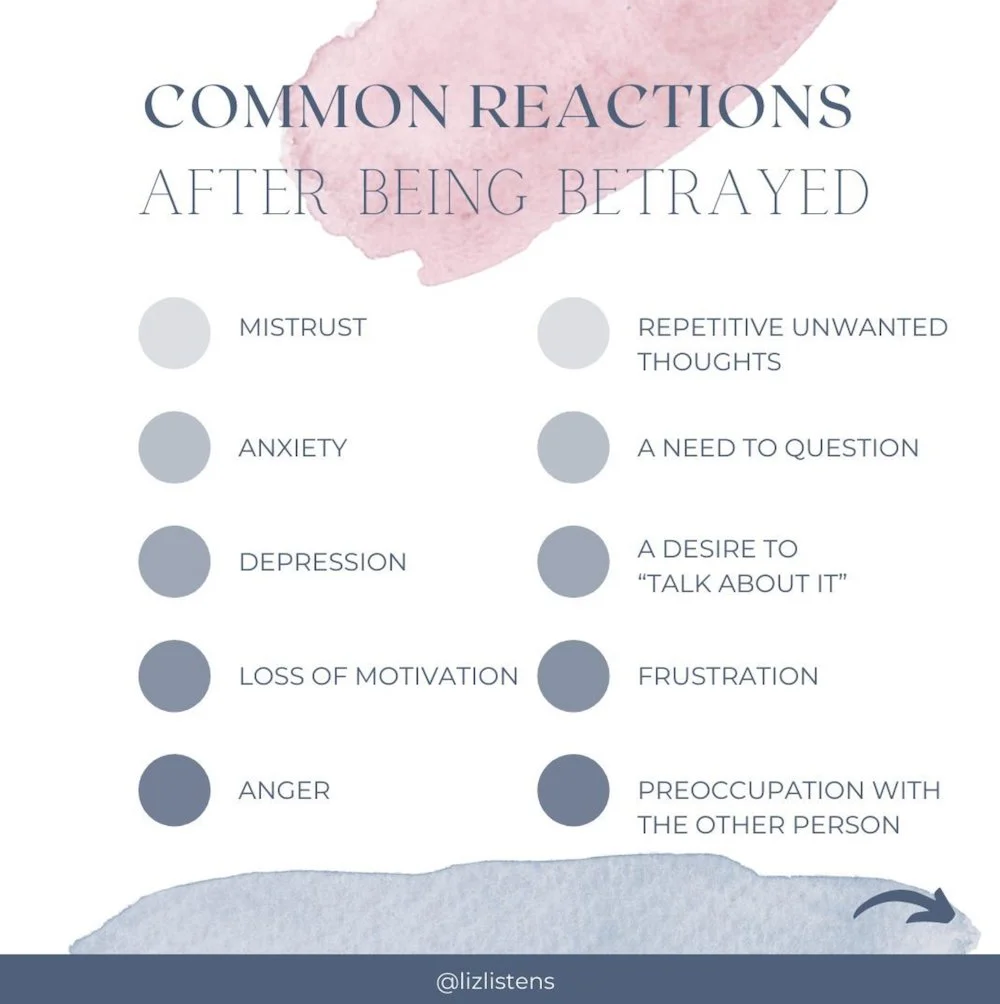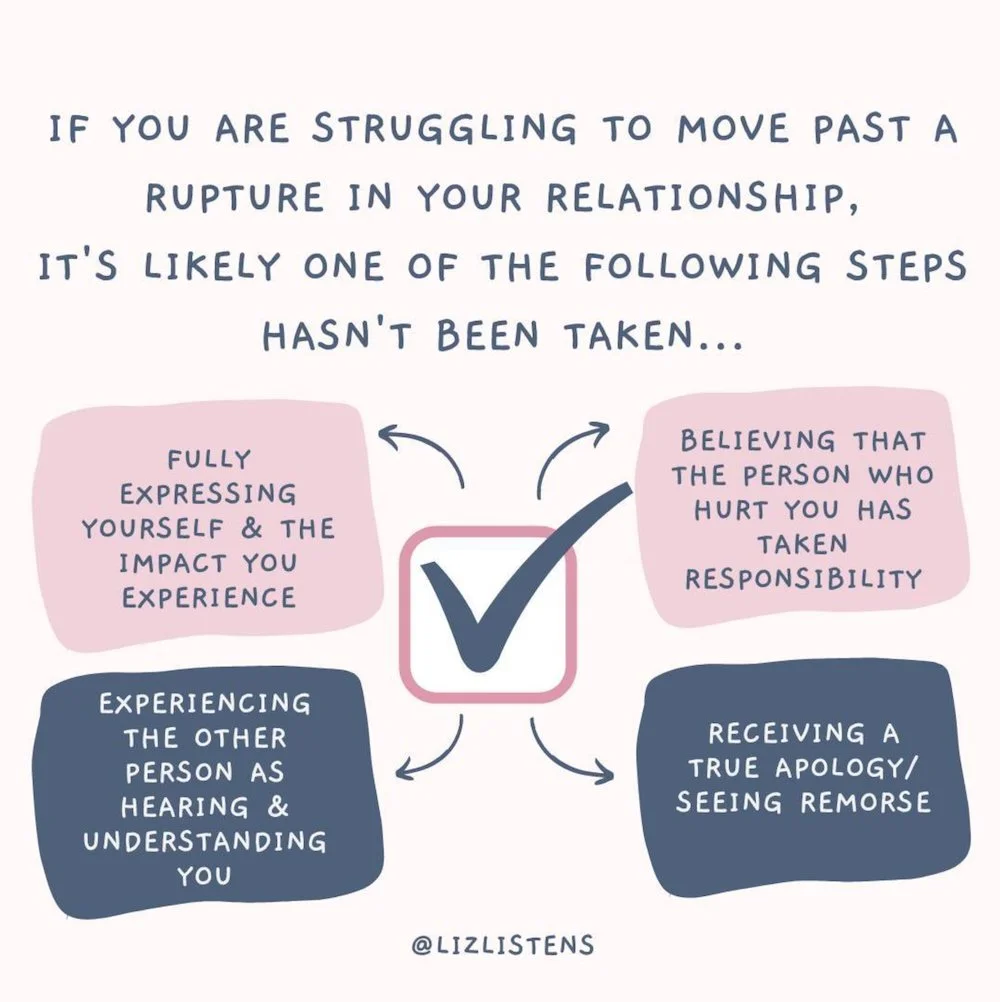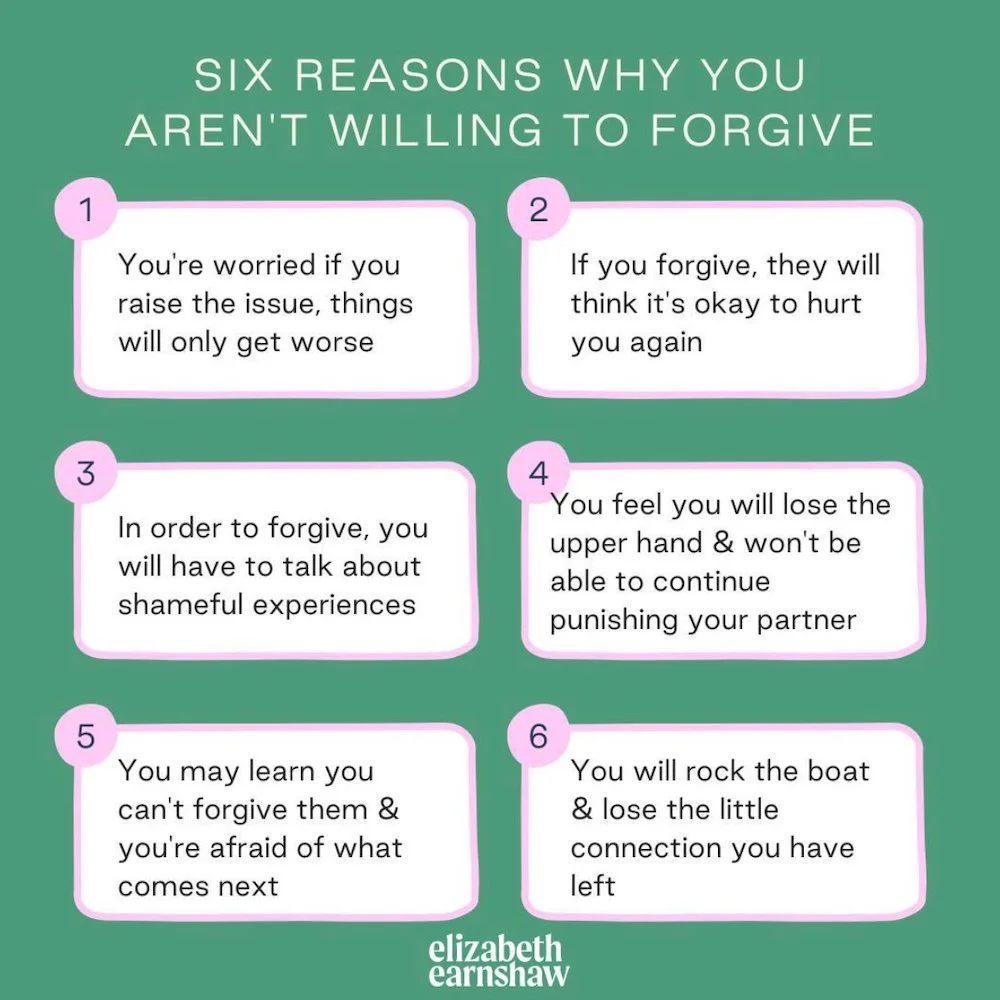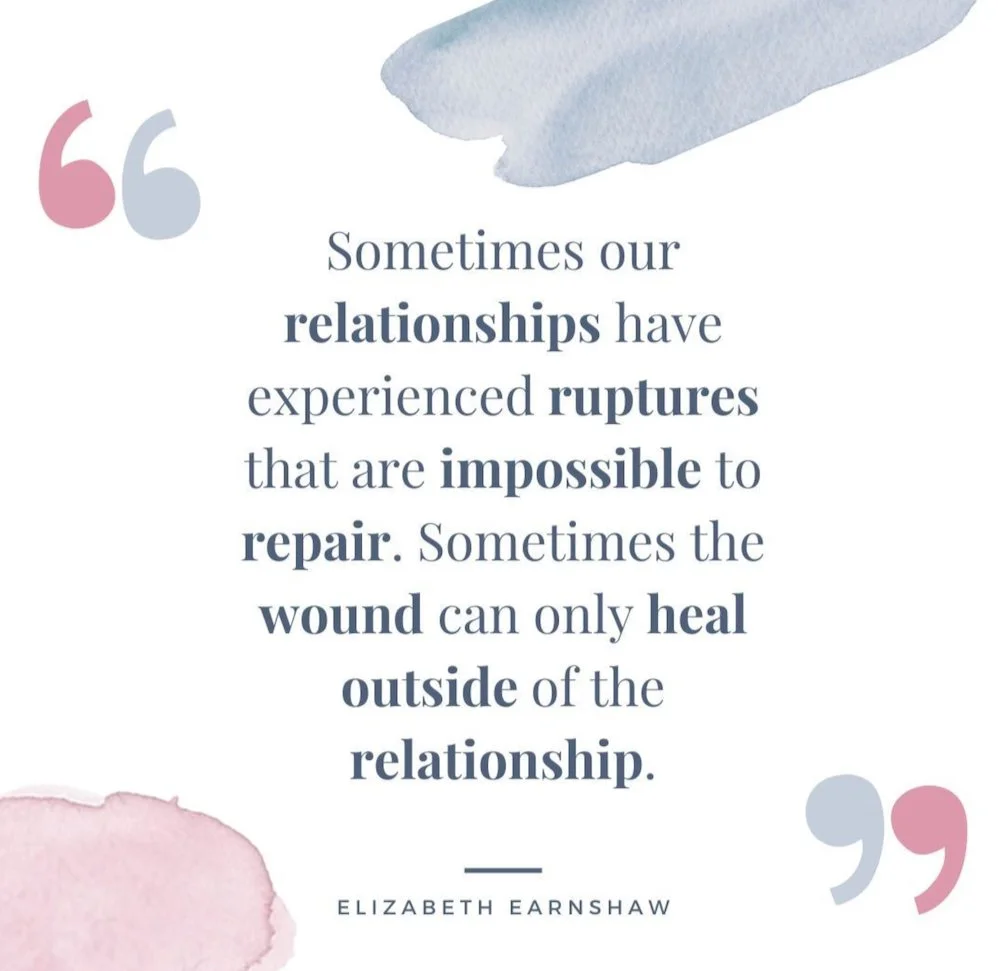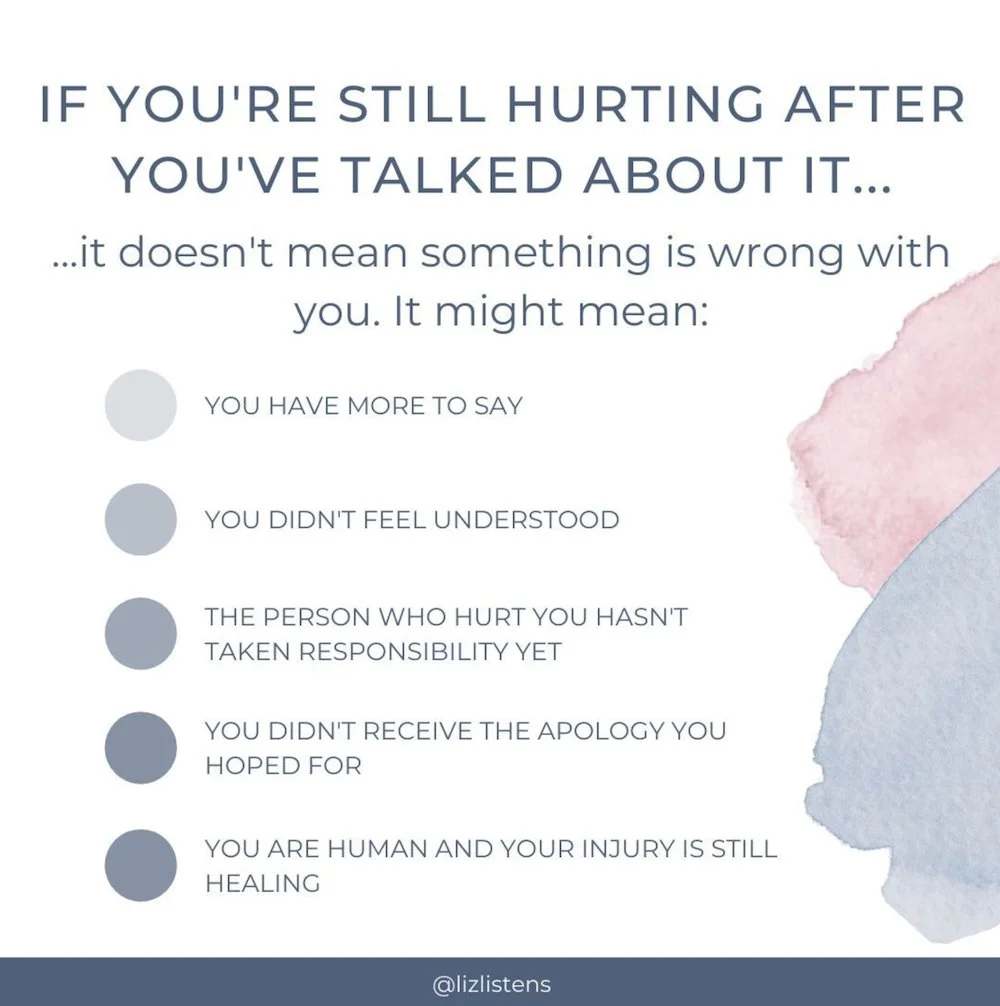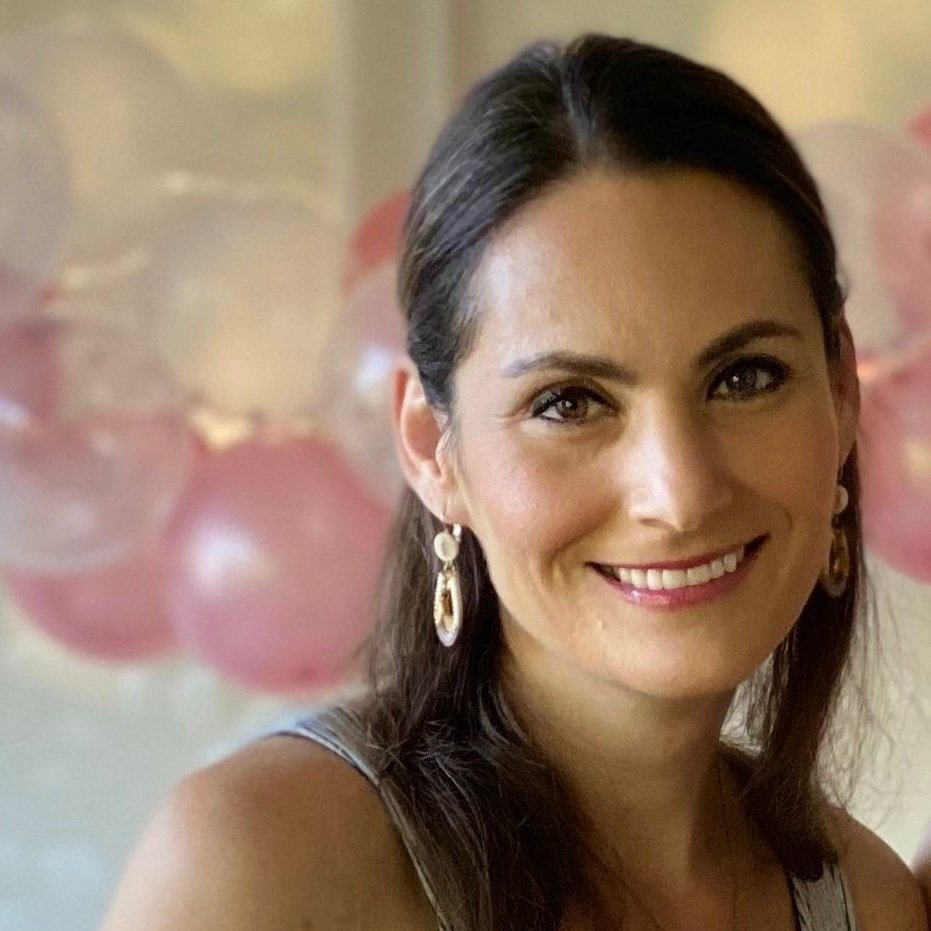Do We Really Have To Forgive People Who Were Monstrous To Us? An Investigation
by Carolyn Firestone
It’s hard to make blanket statements about forgiveness.
For the most part, it gets treated like a virtue akin to compassion. The message to say “it’s ok” after being wronged is one we get hit with from that very first mom-driven apology insincerely mumbled at us by a bratty kid on the playground.
From then on, some version of that message keeps getting reinforced, be it through inspirational signs at Target’s home section or in-depth studies citing the benefits of being able to forgive.
And honestly, in this very judge-y, grudge-y, internetty world we live in, the capacity to forgive does seem like something we could all collectively stand to get better at.
But…
Boiled down to specific circumstances, most of us know that it’s a lot more complicated than that. More personal. And more contingent. Especially when we’re weighing things as heavy as childhood trauma, infidelity, or a betrayal of trust.
So how do we decide if forgiveness is right for us?
To help us make sense of whether or not we really need to forgive, we called upon Marriage & Family Therapist Elizabeth Earnshaw. And she left us with 9 incredibly insightful takeaways.
So, let’s get into it.
1. Decide what it means to you to forgive. And make it about you.
The first thing we have to do is understand what forgiveness means to us. “Forgiveness is complicated. Generally, it's defined as the ability to let go of resentment, ill will, and feelings of vengeance towards another person,” said Earnshaw. However, that doesn’t mean we should think of it as something that requires action toward another person. Rather, it’s a process we choose whether or not to engage in - both in and for ourselves.
“For some, the word feels liberating and empowering. The person hearing it believes that forgiveness is an internal process that has more to do with them letting go of bitter feelings than it does about whether or not the other person deserves it,” said Earnshaw. “Others, however, find the word to feel invalidating and disempowering. Holding onto their right to ‘not forgive’ feels more healing.”
There is nothing wrong with being on either side of this spectrum or right smack in the middle. “The most important part after being harmed…is learning how to navigate the resulting feelings in a way the benefits you and does not continue to harm you,” said Earnshaw.
2. Consider what the grudge might be costing you.
Again, the choice to forgive does not mean you’re saying what happened to you was in any way okay. It will always be about reducing your suffering and reaching your own sense of peace.
It’s worth noting that a series of studies have shown that the hostility and stress that often comes with holding a grudge can have consequences that include increased levels of:
Pessimism
Isolation
Cognitive decline
Anxiety
Depression
Stress
On the flip side, studies have linked the act of forgiveness to:
Lowered risk of heart attack
Improved cholesterol levels
Better sleep
Reduced pain
Lower blood pressure
Decreased anxiety, depression and stress.
Healthier relationships
A stronger immune system
Higher self-esteem
3. Recognize roadblocks.
In order to make any sense of our tangled path to forgiveness, we have to consider the elements getting in the way. Earnshaw points to 4 common reasons people may struggle to forgive.
Not having been apologized to
Not feeling understood by the person who hurt you
Not feeling the person took responsibility
Not feeling that you've fully expressed yourself.
“We often hope that the person who hurt us will still see us as valuable enough to recognize their wrongdoing and make amends. However, we won't always get that,” said Earnshaw. “There are also times where it is hard to forgive because the action was egregious. Even if the person who harmed us apologizes, shows understanding, and takes responsibility, it might feel incredibly challenging to let go and move forward.”
You might notice a lot of this seems contingent on the other person and what they’re willing to bring to the table. But we also get caught up in our own fears and defense systems that make it hard for us to move forward or let go.
We may feel righteous in being wronged, stubborn about our anger, or resistant to dealing with what occurred at all. If we’re trying to work things out with our partner, we may not want to give up the control or “upper hand” we feel we have by holding on. Or we may be understandably afraid to be open or vulnerable to being hurt again.
Forgiveness can be a revealing process that unfolds over time. Which is why it helps to set a precedent to not judge ourselves and to just be curious about what could be keeping us stuck in our suffering.
Some of this will involve the core honest feelings of anger and sadness we need to process to move on. Some of it will involve our own crumby guard we need to work on letting down. And some of it will involve circumstances outside our control. The point is, it’ll get confusing. So stay self-compassionate…and stay hopeful!
“Regardless of where the wrongdoing lies on the continuum, there is absolutely a way to learn how to integrate the anger, betrayal, hurt and pain in a way that no longer eats you up inside,” said Earnshaw. “Whether you call that forgiveness, letting go, or moving forward doesn't matter as long as it works for you.”
4. Accept that it’s ok not to forgive someone.
“It’s ok to say you're not going to forgive someone under many circumstances, especially egregious circumstances,” said Earnshaw. “I would rather focus not on whether you want to identify as forgiving another person and more on how you're navigating your own internal world of anger, resentment, rage, etc. and how that is impacting your health and relationships.”
If you’re considering actually cutting ties with someone in your life, Earnshaw suggests talking it over with a therapist or another trusted person. “As a rule of thumb, if hurtful behavior continues, is dangerous, or there is no remorse or behavioral change, it might mean it is time to cut ties.”
5. Consider if you want to continue to have a relationship with the person who hurt you.
Painful past experiences require their own work to process. But for recent events and current (particularly romantic) relationships, forgiveness may be necessary if we want to remain close to the person who hurt us. It’s one thing to decide to leave a relationship, but to stay and punish your partner for eternity only leaves everyone miserable.
“If you want to continue a relationship with someone, I think you have to be willing to forgive,” said Earnshaw. “Relationships can only thrive when there is the safety of trust and commitment….If you believe that forgiveness leaves you too vulnerable, then that is really good information for you and likely means you cannot safely continue the relationship.”
6. Let yourself be angry.
There’s something to be said for expressing our anger in clean, healthy ways and in safe spaces (such as with a therapist). “When people resist their anger, it makes them sick (physically and emotionally),” said Earnshaw. “It maintains resentment and unhealthy relationship dynamics.” Feelings tend to come in waves, so letting ourselves feel a feeling fully can leave us in a calmer, clearer state where we can make good decisions about our lives.
7. Let yourself off the “hook.”
“If you're struggling to forgive, and it's only causing you pain in your own body and in your relationships, then there is a problem,” said Earnshaw. Falling into patterns of rumination, victimization and persistent rage that isn’t adaptive only hurts us.
“There is a metaphor about being caught on the hook when it comes to forgiveness,” said Earnshaw. “When someone hurts you, it's like they've put a hook in you. If you keep holding onto the hook (by ruminating, etc.) then you'll never leave it. You'll be stabbed by it for as long as you hold it. Once you begin to allow yourself to move past the rumination and thoughts of vengeance, you release yourself from the hook. Don't let someone hook you with their painful actions and then choose to stay on the hook.”
8. Try these 3 steps for rebuilding trust.
When forgiveness involves re-establishing trust with a loved one, Earnshaw helpfully outlines these 3 crucial steps:
1. Atonement – “Take time together to process what happened. The person who was hurt should get the floor to describe their pain, ask questions, and make requests. The person who caused the harm should practice listening to the pain, building trust through trustworthy actions, and answering any questions to help fill in any holes in their story.”
2. Attunement – “After there has been a process of atonement, people can spend time getting to understand each other better. They might look back at what set them up for what happened. They might start to get to know each other ‘again’ in a different way. This is where new norms can be set and relationship boundaries can be defined.”
3. Attachment – “In the final phase, people can feel more securely connected to each other. They might not forget what happened, but they feel more confident that there was true remorse, action was taken to make it right, and that they understand each other's limits.”
9. Embrace vulnerability.
“Forgiveness is vulnerable whether you choose to continue the relationship or not, because it asks you to experience soft feelings which can be scary,” said Earnshaw.
Yet, those soft feelings can be our saving grace, because, ultimately, they’re not about giving that other person permission to keep hurting us but giving ourselves permission to stop using what happened to continue hurting ourselves.
carolyn firestone
Carolyn is a freelance writer and editor. Her favorite thing to do is to write about her favorite things, especially when they have even the slightest chance of making someone else’s something (mood, relationship, travel plans, or toiletry kit) a little better. You can find more of her articles here.
This article is for informational purposes only. It is not intended to be used in place of professional advice, medical treatment, or professional care in any way. This article is not intended to be and should not be a substitute for professional care, advice or treatment. Please consult with your physician or healthcare provider before changing any health regimen. This article is not intended to diagnose, treat, or prevent disease of any kind. Read our Terms & Conditions and Privacy Policy.







